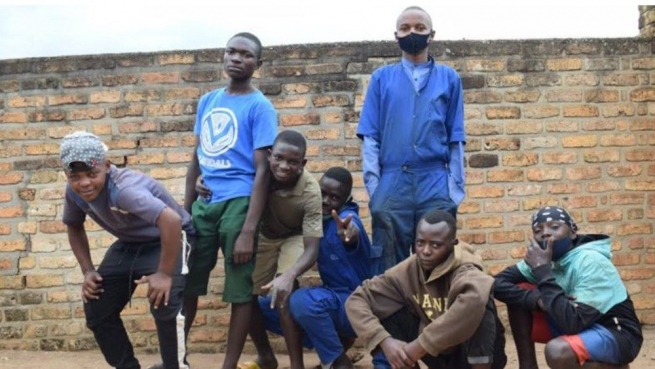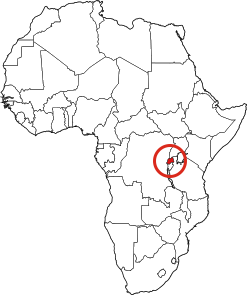RWANDA: Center expands to meet the needs of poor youth

Salesian Center in Rango is changing the lives of poor youth who have been living on the streets
(MissionNewswire) The Salesian Center in Rango, located in the city of Butare, Rwanda, has a parish, an oratory and a large vocational training center. The center, in operation since 1996, is currently expanding to meet the needs of poor youth and their families in the region. One of the main focuses of the center is to give shelter and opportunity to street children who would otherwise spend their lives on the fringes of society.
“They come from the street asking to eat, and many choose to stay to take vocational courses such as those for mechanics and shoemakers,” said Father Remy Nsengiyumva, a Salesian parish priest in Rango. “We offer school supplies and uniforms, but the problem is food. Some, in fact, live completely on the street, others receive food in the host families. Still others eat only in the evening when they study for technical courses. Making sure youth are fed is a primary concern.”
To address the issue, Fr. Nsengiyumva and his parishioners are organizing a small canteen to cook at noon. There is still no formal project, the work was started at the beginning of the pandemic when street children began to knock on the parish office door. Fr. Nsengiyumva said, “Since their companions have been treated well, now they come in large numbers. We ask all those who can to give us a hand.”
There are many children who have received help and support from the Salesian Center in Rango and have had their lives changed for the better. Kande, who is 16, arrived at the parish to ask for a piece of bread. He started living on the street when he was 10. He recalled, “Life was hard. Sometimes the police came to arrest us and took us to the Mbazi rehabilitation center, and we stayed there for about five months, and then, when you came back on the street, you struggled to even find a place to sleep.”
His friend, Dakarai, began begging on the street after his mother killed his father in a family quarrel and ended up in prison. He said, “I continued to live on the street for about 13 years, but now I have had the opportunity to study mechanics, thanks to the Salesians.”
Other youth have had similar positive experiences. Juvenal noted, “I’m grateful to the priests because they brought me to vocational training. Today I study mechanics with my peers, but we don’t have everything we need. We lack school uniforms, and even shirts and shoes are hard to find due to poverty. But if you lack something to eat, you can put up with it and go back to school because you have a goal to achieve.”
After bravely overcoming the trauma of the 1994 genocide, Rwandans looking to transform their country have made remarkable progress. Still, much remains to be done. Close to 39 percent of Rwandans live in poverty, according to the World Bank. Rwanda is a rural, agrarian country with about 35 percent of the population engaged in subsistence agriculture with some mineral and agro-processing. Many of the country’s orphaned children are the tragic result of a violent civil war. Half of all children drop out of primary school and 2.2 million people—22 percent of the population—face critical food shortages.
###
Sources:
ANS Photo (usage permissions and guidelines must be requested from ANS)
ANS – Rwanda – Rango street children and opportunities at Don Bosco Center
Salesian Missions – Rwanda
UNICEF – Rwanda





